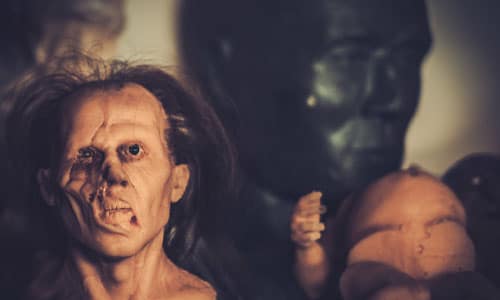Living with a facial or body disfigurement can be very difficult, and can pose a significant challenge to self-esteem, with potentially serious consequences for mental and emotional health. However, with the right support, people with even very serious disfigurements can live full and rewarding lives.
Living with a facial or body disfigurement can be very difficult, and can pose a significant challenge to self-esteem, with potentially serious consequences for mental and emotional health. However, with the right support, people with even very serious disfigurements can live full and rewarding lives.
While some people are born with a congenital facial or body disfigurement, others acquire one. Accidents of all sorts, including burns and car accidents, and illnesses including cancer—which can result in parts of the face or body having to be removed—as well as a range of skin disorders, can all result in dramatic changes to the appearance. While many people may opt to have plastic surgery or other treatments designed to minimise the change to how they look, it may not always be possible for them to return to how they appeared before. Others may prefer not to have plastic surgery, especially in cases where the outcome is uncertain and the risks are considerable.
For those whose appearance is significantly different to the norm, it can sometimes seem tempting to stay at home or to restrict their social life to a small, intimate circle of people who already know what they look like and are no longer surprised or shocked. However, social isolation can be a contributor to poor mental health—and it is certainly unfair to expect anyone whose appearance is different to stay at home, just because others might be taken aback.
For those whose appearance has changed because of an accident or illness, it is normal and healthy to go through a grieving process and to feel sad about what has happened. Rather than resisting these feelings, it is healthier to accept them and work through them—perhaps in therapy or in a support group. Various therapeutic modalities, including Cognitive Behavioural Therapy (CBT), have been proven to help. Therapy may also be useful for close family members and friends of the person in question, and many families will find a few sessions of family therapy productive and helpful.
Interacting with others in public can be a cause of anxiety to many people with facial or body disfigurement and, without useful coping strategies in place, this anxiety has the potential to escalate. To prevent anxiety getting out of control, it may be useful to learn some “set” responses to use when you are out and about, to mitigate the impact of comments from the people you may meet. Remember that while some people may be unkind, others—especially children, who have not yet learned about social boundaries—are just curious. For example, if someone asks, “What happened to you?” you could explain, briefly, that you had an accident or that your appearance changed because of treatment for illness. Do not be afraid to meet people’s eye or to smile back if you see someone looking at you. You have no reason to feel ashamed, and if you project confidence through your body language, most people will respond accordingly. Having dealt briefly with the topic, you can quickly change the subject. For example, you might say something like: “Yes, I had an accident that left me with some scarring. Fortunately, I am well able to get on with my life. Isn’t it a beautiful day today?” Or: “I look a bit different because I had cancer treatment; I am so grateful to be healthy now.” As time passes, while it may get quite boring having to respond to curious questions all the time, it will become routine and will dissipate any feeling of awkwardness, allowing you to just get on with your life.
For children with a disfigurement, be it congenital or acquired, it is important to ensure that they are equipped with strategies that will help them to answer questions from their peers in such a way that their curiosity is managed, leaving them free to enjoy their childhood; to learn and grow. Of course, no bullying or name-calling can ever be tolerated, and parents, caregivers, and teachers will need to be mindful of this.
For anyone with a disfigurement, it is also important for them to be aware of their rights. It is illegal to discriminate against someone on the basis of disfigurement, such as by denying them the opportunity to be promoted at work or to take part in work activities that involve them interacting with the public.
If you would like to talk to someone about issues relating to face and body disfigurement, please get in touch with us at the Private Therapy Clinic by telephone at: +442038872866 or book online.













